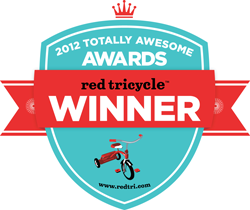Neuroscience can explain why your kids have the holiday gimmees.
I’ll never forget a holiday moment a few years ago, when I found myself in a negotiation with my younger daughter over her gift list. (Which, by the way, I don’t believe in. In theory, I’ve never wanted my kids to make lists of things they want for Christmas and Hanukkah. But we did “go see Santa” when they were younger, and they did prepare to ask him for a gift, so I’ve never really put my money where my mouth is.)

Anyway, my daughter was in the back of the car rattling off all the things she wanted for Christmas, excitedly, as though it were a done deal and she would soon be receiving everything she ever hoped for. And I was anxiously trying to do damage control:
Santa only brings one toy (“Nah-ah, Mom, he brought Ella THREE last year!!”); Santa can’t bring live animals (she passionately wanted a live llama); if your grandparents get you Uggs instead of Payless knock-offs, you won’t get any other presents from them (economic logic lost on a seven-year-old).
I thought I was going to lose my mind. I’d been trying to create special holiday traditions that foster positive emotions like gratitude and altruism—traditions that would bring meaning, connection, and positive memories. And it all seemed to be falling on deaf ears. My children had wish-lists longer than they were tall. Even my parents were fighting me on going to church Christmas Eve, because they thought it would cut into the gift exchange.
I know I’m not alone; nearly all of my coaching clients have expressed similar dismay. So if we don’t want our children to be whipped into a consumer frenzy, and we value other things, why does this happen, year after year?
One answer, of course, is that on some level our society has come to believe that our economy depends on a gift giving extravaganza, and that the holidays wouldn’t be fun without all the gifts. I’ve been reflecting on this, and on the other forces at work this time of year.
Discover the three reasons why we want, want, want so much stuff come the holidays and what we, as parents—and consumers—can do to resist. Read the rest of this article here, on my Greater Good blog.

 Research shows that by boosting your happiness level, you can live a longer, healthier life. I share some of my favorite happiness tips with Dr. Oz today!
Research shows that by boosting your happiness level, you can live a longer, healthier life. I share some of my favorite happiness tips with Dr. Oz today! Create a gratitude garland (see photo). Hang a ribbon in a doorway, and put a basket of colored paper squares below it, with pens and clothes pins. When guests & family members enter that room, ask them to write something they feel grateful for and hang it up!
Create a gratitude garland (see photo). Hang a ribbon in a doorway, and put a basket of colored paper squares below it, with pens and clothes pins. When guests & family members enter that room, ask them to write something they feel grateful for and hang it up!
